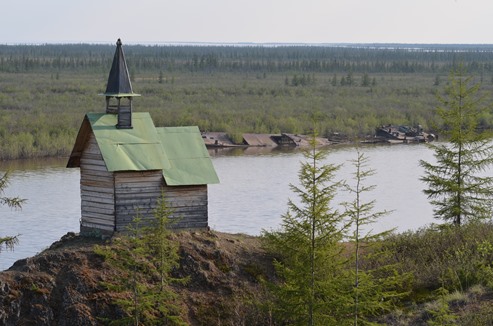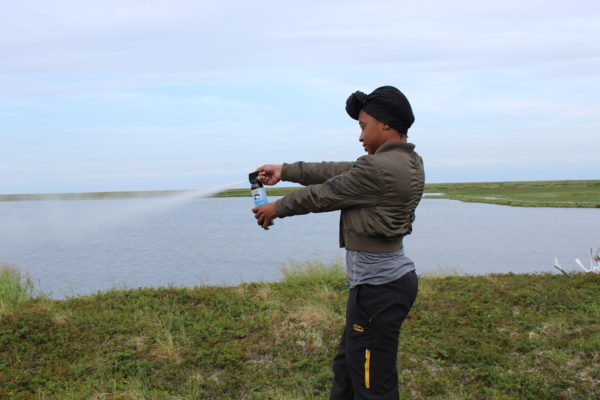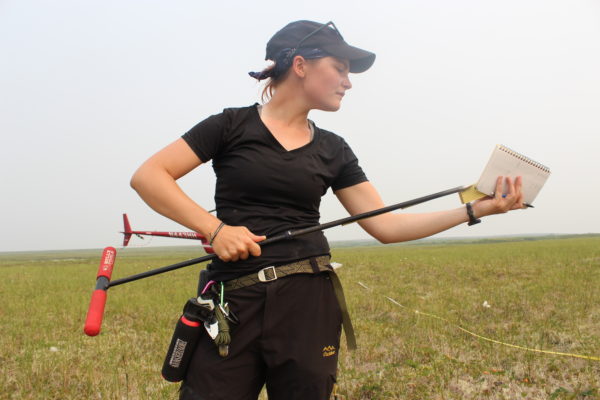We have arrived safely in Cherskiy, a few nights ago now. Things have been busy! Travel went remarkably smoothly, with no delays , no lost baggage, and really no serious issues. After four to five flights for each of us, we’re all glad to have landed! The Kolyma and other rivers are still at much higher levels than they will be in July, and the landscape has only just begun to green. Crossing low over the Kolyma in our propeller plane helped bring home just how immense this river is.
I first came to Cherskiy in 2009, as an undergraduate at Clark University. Now, I’m returning back for my second trip to Siberia, and fifth trip to the Arctic. Despite the four years and the many improvements to the North East Science Station, wandering around our first night felt remarkably familiar. My first trip to Cherskiy left an indelible mark, hooking me on Arctic research and a continuing interest in the changes going on in Russian ecosystems. Even though we are staying in Orbita (a renovated television station), viewing the barge from the road felt a little bit returning home. In way, we are – Jorien, Sam and I have all lived here for a month or more, at some point or another.
Despite our limited time at the North East Science Station so far, we have already accomplished a good amount! The weather has been perfectly clear the past three days, and we have already collected five samples for our Aquatic Survey. I’m particularly happy, as these samples corresponded with a satellite taking images of the region – data which I will be using for my dissertation. From my first trip to Cherskiy, I wrote a paper (with the help of Polaris faculty Karen Frey and Max Holmes!) using such images to measure remotely how much organic matter was in the rivers during July and August. Organic matter – essentially little pieces of dead plants or other organisms – is important food for bacteria, which will transform their food into greenhouse gases like methane or carbon dioxde. My PhD research aims to scale up the use of satellites to include: multiple seasons, six large rivers and data from the past thirty years to look for impacts of climate change on rivers.
As I write, Sam and Elise are out sampling a lake, while Jorien and I continue to set up the lab space. A separate group of scientists, ornithologists studying peregrine falcons across the Russian Arctic, is currently traveling with Sergei Zimov down to Duvannyi Yar and the Omalon River, and hopefully will also grab a few river samples for us. We have set up most of the lab equipment, planned various experiments for each of us, and collected data from an instrument that was recording water level in a stream all through the winter. As always, Polaris Project is keeping everyone busy, but we will try to provide more updates soon!





Comments(2)-
-
Sue Natali says
June 17, 2013 at 5:39 pmGreat to see that your travels went smoothly and that you are off to a running start. Looking forward to joining you in Cherskiy soon!
Roy Griffin says
June 17, 2013 at 8:03 pmI’m glad all went so smoothly!